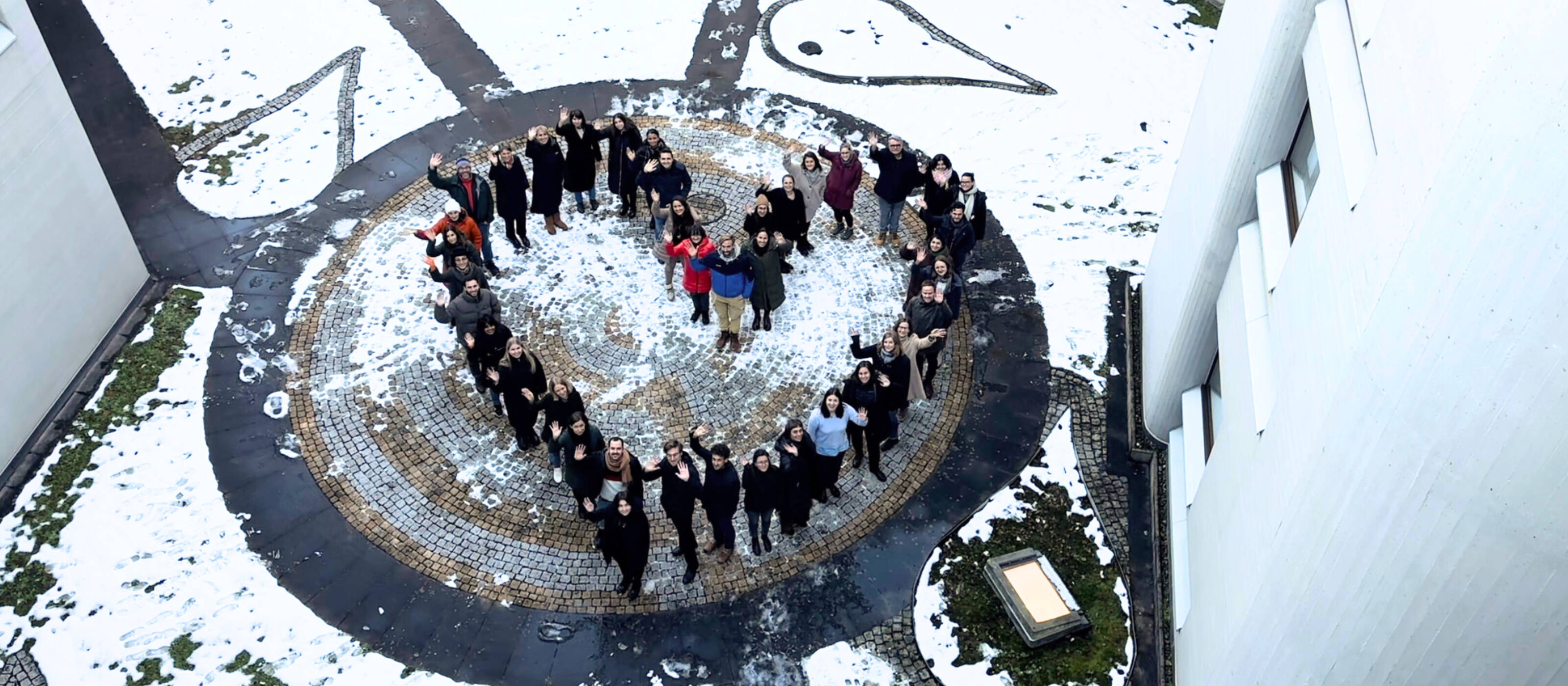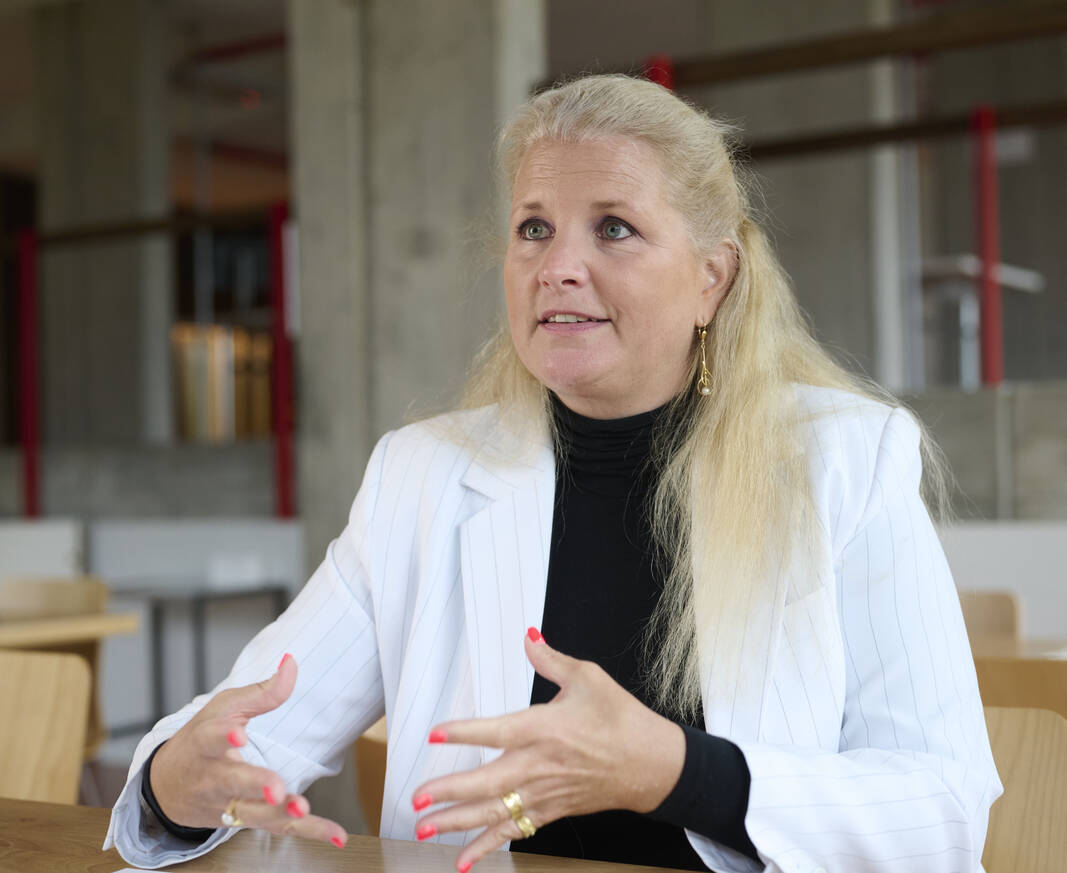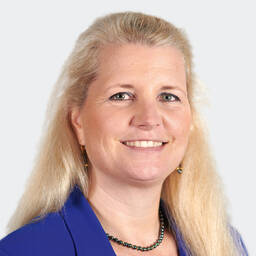

Our employees are our greatest potential

Chantal Cornaz is a member of the Executive Board and has been responsible for the Human Resources (HR) section for more than five years. The 1’214 employees across the world are Caritas Switzerland’s key resource, while the many locations and different contexts are a challenge.

Chantal Cornaz Head of Human Resources and member of the Executive Board
Caritas Switzerland fulfils its mission thanks to the commitment of its employees.
Chantal Cornaz, who are the people working at Caritas Switzerland?
The employees of Caritas are our most valuable asset. They are characterised by extraordinary commitment and always look out for the people we support with our work. This attitude is clearly apparent in their day-to-day work – in their personal interaction, in their teams, between superiors and employees or between female and male colleagues. The corporate culture is marked by mutual respect. Such cooperation is important to the people who come to join Caritas Switzerland.
Is Caritas Switzerland competitive in terms of the conditions of employment?
Yes, without a doubt. Although we can’t, for obvious reasons, always match the salaries in other sectors, our social benefits are extremely attractive. But most employees work for Caritas Switzerland because it gives them a sense of purpose.
How flexible is Caritas about working from home?
There is a good balance: we allow staff to do a maximum of 50% «mobile working». Depending on developments in the labour market and our needs, we may make even bigger concessions. But for good personnel management, physical distance is a challenge. We need regular interactions to sense the mood in the teams. Moreover, many employees have direct contact with the beneficiaries in their activities.
Our organisation is growing strongly and the staffing requirements change constantly. How can one ensure an efficient and successful recruitment process?
A lot of flexibility is needed in HR and, at the same time, clearly regulated processes. This also applies to the senior staff involved in recruiting personnel. Creativity is required. It is important to concentrate on the essentials and to open up new channels of communication. It is no longer enough simply to advertise. One has to actively seek out applicants. Thanks to my HR team’s wealth of know-how and the involvement of our senior staff, we succeed in finding suitable people. However, it is not easy, and we do notice the shortage of skilled labour. That’s why we also make use of our employees’ personal networks.

«The employees work at Caritas Switzerland because they feel a sense of purpose.»Chantal CornazHead of HR
In addition to the head office in Lucerne, there are hundreds of employees working in Boudry, Friburg, Matran, Lausanne and Geneva, as well as in the cantons of Zurich, Schwyz, Obwalden, Uri and Zug. Added to this are the staff employed locally in 15 countries. How are people successfully brought together?
That is indeed one of our greatest challenges. The relationship that our staff have with their employer varies according to their place of work. Staff away from the head office are focused on their local context and work for the local employer. We from HR, as well as the Executive Board, need to engage well with these decentralised teams and maintain a dialogue.
This is the only way we can reliably communicate our values to all employees. Also of great importance here are the senior staff, who provide a link between the management and the local teams.
How is Caritas Switzerland developing?
Because of our strong growth, efficiency is a key factor. The HR section does everything to make life easier for the managers and employees so they can concentrate on their tasks. The aim is to achieve this by means of more efficient digital processes, simple forms and an appropriate degree of automation. The social challenges in Switzerland and a world in permanent crisis force us to bundle our competences even more closely and dynamically so that we can fulfil our mission.
Human Resources in figures
0
employeesare committed at Caritas Switzerland to a world without poverty
(31.12.2023)
0
%of all employees work abroad. Of these, 322 are employed by the local national organisations and 27 directly by Caritas Switzerland.
(31.12.2023)
0
languagesare spoken among Caritas Switzerland employees. After German and French, the most common language is Amharic (spoken in Ethiopia and elsewhere).
(31.12.2023)
0.00
%of management positions at Caritas Switzerland are held by women.
(31.12.2023)
© Nicolas Honoré
Header image: © Daria Jenni